- News
- Reviews
- Bikes
- Accessories
- Accessories - misc
- Computer mounts
- Bags
- Bar ends
- Bike bags & cases
- Bottle cages
- Bottles
- Cameras
- Car racks
- Child seats
- Computers
- Glasses
- GPS units
- Helmets
- Lights - front
- Lights - rear
- Lights - sets
- Locks
- Mirrors
- Mudguards
- Racks
- Pumps & CO2 inflators
- Puncture kits
- Reflectives
- Smart watches
- Stands and racks
- Trailers
- Clothing
- Components
- Bar tape & grips
- Bottom brackets
- Brake & gear cables
- Brake & STI levers
- Brake pads & spares
- Brakes
- Cassettes & freewheels
- Chains
- Chainsets & chainrings
- Derailleurs - front
- Derailleurs - rear
- Forks
- Gear levers & shifters
- Groupsets
- Handlebars & extensions
- Headsets
- Hubs
- Inner tubes
- Pedals
- Quick releases & skewers
- Saddles
- Seatposts
- Stems
- Wheels
- Tyres
- Health, fitness and nutrition
- Tools and workshop
- Miscellaneous
- Cross country mountain bikes
- Tubeless valves
- Buyers Guides
- Features
- Forum
- Recommends
- Podcast
news
“Cars never seem to be the problem”: Cyclists slam Times article blaming Paris cycle lanes for slower bus journeys – but ex-transport officer claims “bikes prioritised over everything”; Chalamet cycles; Montmartre 2025 Tour finale? + more on the live blog
SUMMARY
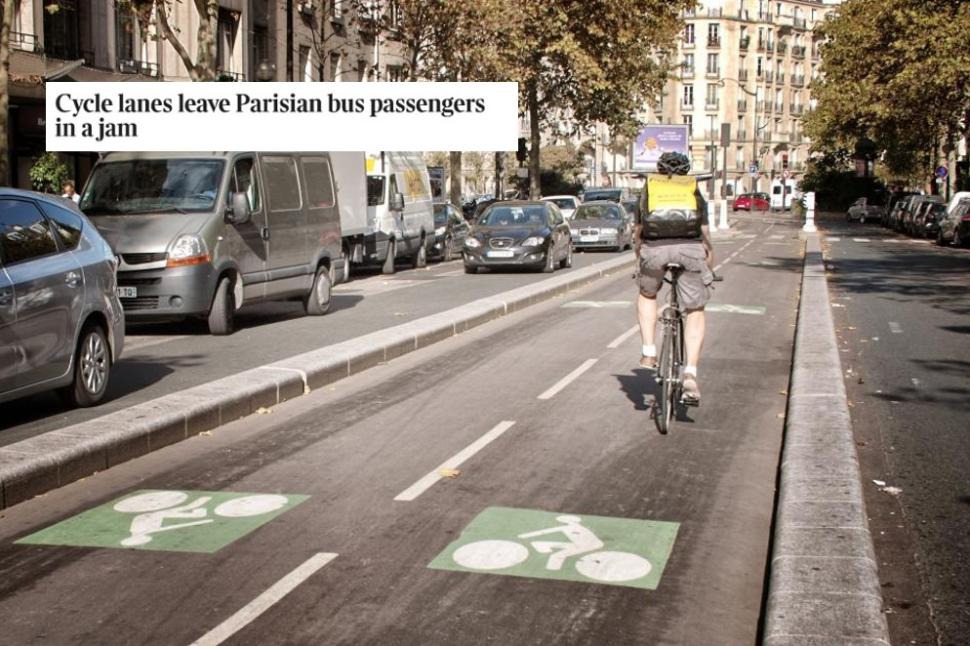 Paris cycle lane and Times bus journeys headline (Simon MacMichael)
Paris cycle lane and Times bus journeys headline (Simon MacMichael)15 January 2025, 09:09
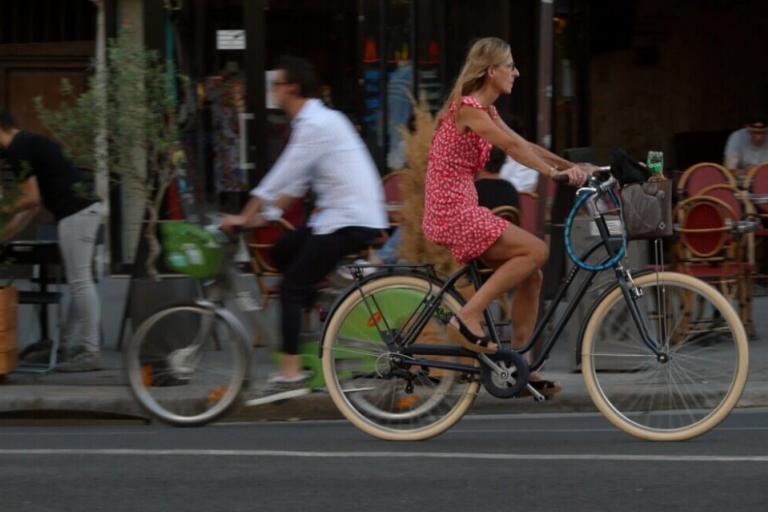
“Cars never seem to be the problem for some people”: Cyclists slam Times article blaming Paris cycle lanes for slower bus journeys – but former transport officer claims “cycling lobby prioritised bikes over everything”
A recent article in the Times – which claimed that the rapid proliferation of cycle lanes in Paris over the past few years has driven locals away from the city’s buses due to congestion and increased journey times – has been criticised by cyclists and road safety campaigners, who argue that the story is further evidence that “cars never seem to be the problem for some people”.
Earlier this week, the Times – the paper that in 2012 launched its award-winning and highly-praised Cities Fit for Cycling Campaign, which called for the introduction of safe cycling infrastructure – reported that “Parisians are abandoning the city’s buses in despair” thanks to the congestion apparently caused by the French capital’s newly introduced cycling infrastructure.
Overseen by pro-cycling mayor Anne Hidalgo, Paris’ cycling revolution of the 2020s has led to the creation of around 100km of bike lanes in the city, while the number of people riding bikes has doubled since the end of the Covid-19 lockdowns.
A 2024 Paris Région Institute study also found that cycling now accounts for 11.2 per cent of all trips in central Paris (compared to just three per cent a decade before), while car usage has fallen to just 4.3 per cent. Walking, meanwhile, still comprises 50 per cent of all trips in the centre of the city, with public transport coming second at 30 per cent.
However, according to the Times, things are apparently looking less than rosy for Paris’ bus network.
“Parisians are abandoning the city’s buses in despair, saying the proliferation of cycle lanes has led to traffic congestion that is affecting journey times,” the article, titled ‘Cycle lanes leave Parisian bus passengers in a jam’, began.
“The buses travel at an average speed of 8.85kph during rush hour, compared with 9.54kph in 2022, according to the RATP, the Paris public transport authority.”
The article then cited a study by the National Federation of Transport Users, which found that Parisian buses now have an average speed of 10.6kph throughout the day, compared to 13.3kph two decades ago.
The Times also pointed out that the total number of bus journeys in Paris was 220 million in 2023, down from 354 million in 2008 – over a decade, it must be said, before the city’s cycling revolution really took root.
“Critics say buses have been a collateral victim of the council’s efforts to get people cycling,” the article continued. “More than €150 million has been spent building cycle lanes in the city since 2021. But Le Monde said this had led to more traffic jams.”
The article also quotes, for balance, Paris’ deputy mayor for public space, transport, and mobility, David Belliard, who rejected this criticism while admitting that the “question of the bicycle is reorganising public space and changing everything”, and noting that officials are working to find a “balance” to improve bus journey times.
While the need to improve public transport and make it more attractive to car drivers is integral to any climate-focused transport strategy, of course, this week’s 250-word conflation of longer bus journey times, congestion, and cycle lanes in the Times – as well as Le Monde – has attracted a fair bit of criticism online from cyclists and safety campaigners.
“Maybe they’re abandoning buses for bikes, instead, as they’re faster,” suggested JT (who I assume isn’t former Chelsea captain and penalty choker John Terry? But you never know these days).
“Average speed during rush hour has gone down by .6km per hour. WOW! What a disaster!” wrote Andy. “The big increase in the cycle network only started a couple of years ago, what caused the decline in speed between say 2008 and 2020?
“What has happened to car ownership numbers in that time? I’ll tell you, it increased by 50 per cent between 2005 and 2020, that’s why your delays.”
“Comparing traffic speeds from 20 years ago with the introduction of cycle lanes is disingenuous,” echoed Amos, while Cycling in London noted that the Times article lacked “a whole lot of evidence, but that’s not a surprise”.
“It’s literally ‘someone said’ cycle lanes are the cause,” noted another social media user.
“I can’t remember The Times going on about how general motor traffic impedes bus use,” added Dr Robert Davis, the chair of the Road Danger Reduction Forum.
“Cars never seem to be the problem for some people – and they pick on cyclists.”
However, Davis’ argument was countered by retired Hackney councillor Vincent Stops, who asked “where has this guy been?”
Stops, you may remember, was Hackney’s lead member for transport, while working on streets policy for London TravelWatch, the capital’s statutory transport watchdog, for over 20 years.
In a blog post in 2022, he labelled cycling in the capital a “ruthless and well-resourced minority interest” that has “been allowed to ruin London’s bus service” – and in October 2024 claimed that cycling in the Netherlands is more dangerous than the UK.
So it’s no surprise he’s bought into the Times’ argument that cycle lanes are the ruin of buses everywhere.
“Where has this guy been?” Stop said in response to Davis’ tweet. “Tackling private car numbers was the bread and butter of transport policy from 2000. It was the cycle lobby changed that and prioritised cycles over everything.”
Roger agreed: “Then we had an ex-journo as Mayor with an ex-journo as his transport advisor. Result: totally owned by a single-issue minority lobby squandering squillions of public money to pretty much ‘net zero’ impact on overall mode share. And casualties? And bus stop accessibility? Oh dear.”
That’s right – blame it all on the cycle lanes. And the journalists, of course.
15 January 2025, 10:27
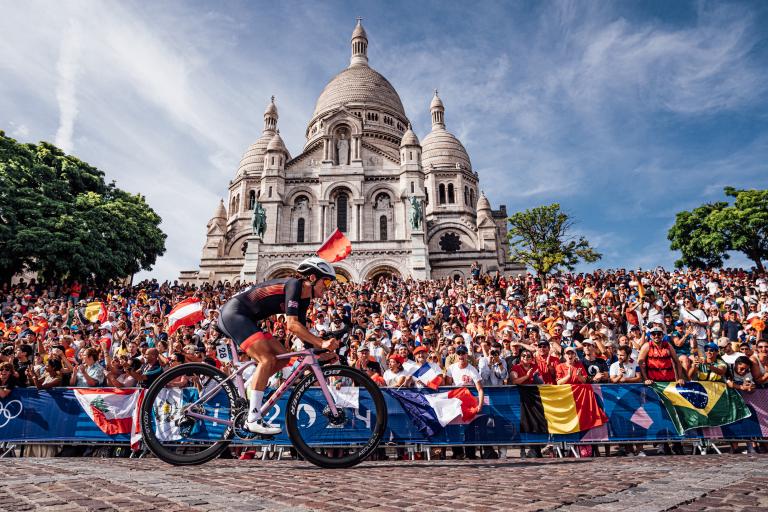
Could the Tour de France’s final stage be set for another shake-up? Organisers reportedly exploring attempt to include Montmartre Olympic climb before Champs-Élysées finish in 2025
Speaking of Paris…
Racing-wise, the 2024 Tour de France’s Nice finale – the only time in the grand tour’s 121-year history that it didn’t finish in Paris, a necessity of last summer’s Olympic Games in the French capital – may have ended up a bit of a damp squib, Tadej Pogačar’s grip on the yellow jersey unbreakable by the time we reached the Côte d'Azur.
But that tradition-busting move – along with the enthralling racing witnessed on Paris’ streets at the Olympics – appears to have ignited a spark of inspiration among the Tour’s organising team.
Because, according to Le Parisien, the Tour’s organisers are currently exploring ways to incorporate the Butte Montmartre – the cobbled, picturesque, spectator-packed climb to the Sacré-Cœur which acted as the focal point of Remco Evenepoel and Kristen Faulkner’s gold medal-winning rides – during the final stage of this year’s Tour.
(Zac Williams/SWpix.com)
The newspaper reports that the Tour is hoping to include three ascents of the Montmartre before plunging back down for the traditional laps-based finish on the Champs-Élysées, and has already filed a request with the Paris Police.
Could the fast men – who struggle through the long climbs and sapping heat of the Tour all in the hope of contesting the unofficial sprinters’ world championships on the Champs – be set for their second annual disappointment, or at the very least be forced to haul themselves over three last steep hills on the last day? Seems a bit cruel, if I’m honest.
The move also represents a U-turn from technical director Thierry Gouvenou’s previous stance on incorporating Montmartre into the Tour, pointing out last year that “it worked for the Olympics, but it wouldn’t be acceptable during the Tour”.
(Zac Williams/SWpix.com)
“The Tour de France peloton is twice as big as it was at the Olympics, so we’d have to find much bigger streets than those used at the weekend,” Gouvenou said.
“In Montmartre, they went through some very narrow streets, and in some places, when they would have needed to provide mechanical service to riders in the pack, they’d barely could have opened the car door.”
(Zac Williams/SWpix.com)
And while Gouvenou, Christian Prudhomme, and the rest appeared to have warmed to the idea over the winter, Le Parisien nevertheless noted that the novel concept could still be scuppered, with the local authorities apparently concerned about the extra police presence and traffic restrictions required for any modified Tour finale.
But if the Tour organisers do get their wish, the 2025 finish on the Champs-Élysées – the 50th anniversary of the race’s first appearance on the world’s most famous boulevard – could be a very special one indeed.
15 January 2025, 16:57
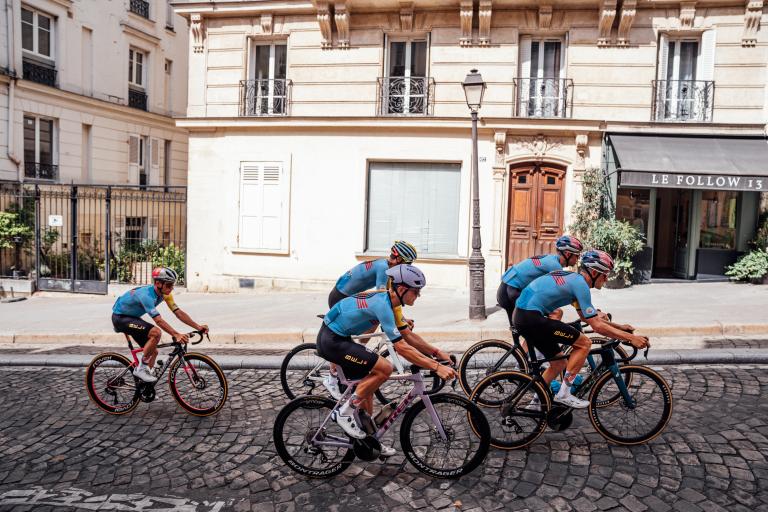
I hope the bigwigs at ASO are listening, because the results of our Tour de France poll are in…
Come on Christian, Thierry, and the Parisian authorities, you know what to do. Give the people what they want – a proper race in Paris.
Can you imagine what would happen if Tadej Pogačar entered the final day of this year’s Tour 30 seconds down on Jonas Vingegaard, with three climbs of Montmartre still to come?
Fireworks, fireworks, I tell ya!
15 January 2025, 09:38
‘Once upon a time you rode a Lime, threw the bums a dime in your prime, didn’t you?’ Dylan goes electric as Timothée Chalamet rocks up to A Complete Unknown’s London premiere on Lime bike
Finally, the Bob Dylan/cycling crossover I’ve been waiting for my whole life…
As Jeremy Vine put it on Twitter, despite what the naysayers on social media and in certain parts of the national press might think, “we’re breaking through”.
Yes, the times really are a-changin’. Because last night, Timothée Chalamet – the acting star of the moment (get with the programme, old timers!) – decided to show up in proper style to the UK premiere of his highly-anticipated Bob Dylan biopic, A Complete Unknown: by riding a Lime bike.
The 29-year-old – fully kitted out as ’64-era funky shirt with blazer Bob (see, I could get a job writing for the Mail’s fashion pages) – casually made his way across London to the red carpet at BFI Southbank on one of the green electric hire bikes, along with his entourage.
Chalamet then parked the bike smack bang in the middle of the red carpet – I can just see the headlines now – before remembering to end his ride on his phone. Good lad.
“If Timmy says Lime bikes are in, Lime bikes are in,” Palace Cinemas wrote in response to the actor’s commute.
Timothée Chalamet riding a bike on his way to 'A Complete Unknown' premiere in London!
🎥 giulliang | Instagram Stories pic.twitter.com/hZhakBocfd
— Timothée Chalamet Updates (@timotheeupdates) January 14, 2025
His latest role as Bob Dylan – charting the Bard’s Greenwich Village days and his ultimate estrangement from the folk scene, culminating in him ‘going electric’ at Newport in 1965 (a pivotal moment which may or may not be conflated in the film with the infamous ‘Judas’ gig in Manchester the following year) – appears to have ignited an interest in ‘60s music and culture among Gen Z.
So, surely it stands to reason that Timmy-loving teenagers will all be hopping on Lime bikes this weekend?
Anyway, in homage to A Complete Unknown’s active travel-friendly premiere, I decided to shoehorn a few references to Lime bikes into some Dylan deep cuts. Who says we only cater for a nice audience?
First up, Like a Rolling E-bike: ‘Once upon a time you rode a Lime, threw the bums a dime in your prime, didn’t you?’
Timothée Chalamet arriving to ‘A Complete Unknown’ event on bicycle. pic.twitter.com/jaXD6baoa5
— Pop Crave (@PopCrave) January 14, 2025
And another classic, from his era-defining album, CS1 Revisited: ‘I ride a Lime bike baby, can't buy a thrill, I’ve been up all night, leaning on the windowsill. But as I ride to the top of the hill, if I don’t make it, I know my battery will.’
And this comeback late-‘80s masterpiece: ‘I can follow the path, I can read the signs, stay right with it, when the road unwinds… on most of the Limes.’
Right, it’s your turn now – get your best Bob Dylan Lime bike lyrics in the comments.
Oh, I’ve got one more – ‘Johnny’s in the basement mixing up the medicine, the Lime bikes are on the pavement’… Oh wait, maybe leave that one.
In any case, at 30kg we know Lime’s e-bikes won’t be blowin’ in the wind anytime soon. I’ll get my Freewheelin’ James Dean coat…
15 January 2025, 17:19

‘We all like Lime cycles, to some degree’: Things Bob Dylan didn’t say at his 1965 press conference in San Francisco
Fair play to everyone in the comments for humouring my Dylan obsession by shoehorning as many Zimmy puns as possible into his lyrics and song titles, in homage to Timmy Chalamet’s own (probably sponsored) cycling-themed take on Bob ‘going electric’ in the mid-60s (see what I did there?).
Here’s a selection of some of your best Lime-scented poetry. You really are the cyclists of your generation.
First up, we have three cracking submissions from mdavidford…
mdavidford: This is the story of the hire Lime, The bike that Panorama tried to blame, For something that it never done...
mdavidford: There must be some quietway outta here, Said the Joker to the Thief, There’s too much pollution here, Can’t get no relief.
And now for my absolute favourite:
mdavidford: You walk into the street with your mic in your hand, You see somebody cycling and you say ‘what is that, man?’, You try so hard, but you just don't understand, What you’re going to say when you go live, Because something is happening here, but you don't know what it is, Do you, Mr Chiles?
Chills, I’ve got chills (not Chiles).
Bob on a bike
Rendel Harris: The way most Limeists I see in central London conduct themselves they had better hope that Death is Not the End because it won’t be long before they are Knockin’ on Heaven's Door – all it takes is A Simple Twist of Fate. Truly a Motorpsycho Nightmare, I’ve spent One Too Many Mornings trying to avoid them when riding Down the Highway.
Jaymack: But there are always problems and complaints when one has a new pony or there’s a changing of the guards – it’s probably because true love tends to forget.
What are you trying to say, Jaymack? That Lime Bikes should definitely be Street Legal?!
Chrisonabike: Can’t match your memory of the lyrics, but I do recall there was a lot of hate when Dylan went electric (though not battery)!
Lesterama: Not as much hate as when Adrian Chiles recently went electric. But I guess Dylan was doing his job well.
Brilliant stuff.
I can just picture the scene now at the Manchester Free Trade Hall, as Dylan wheels out his new e-bike to the horror of the roadie crowd.
‘What happened to pedalling yourself, Bob? Judas!’
‘Ah, come on now – e-bike are still bikes… I don’t believe you, you’re a liar. Ride it f***ing fast!’
Anyway, here’s another photo of His Bobness riding his bike, this time while on tour in Slovakia in 2010:
Imagine if Dylan had taken up cycling in the 1960s – maybe he wouldn’t have crashed his motorbike, instead continuing to tour, eventually burning himself out, never to be seen again after 1967?
Would we have still got the Basement Tapes? Or would the basement have been turned into a pain cave for the rollers?
Anyway, alternative timelines aside, enjoy your evening everyone, and I’ll be back with more niche pop culture references soon.
And don’t forget to scroll on for the rest of today’s cycling news and views. I’m off to listen to Blonde on Blonde…
15 January 2025, 16:32

“By investing in our roots, we will support and inspire the next generation of US athletes”: Ex-Armstrong teammate Levi Leipheimer aims to “reinvigorate” US road racing with “richest one-day race in the world”
On Saturday, it will be 12 years to the day since Lance Armstrong’s long-awaited doping confession to Oprah Winfrey. And it’s fair to say that since then, US road racing – like its British counterpart – has been suffering through an extended period of malaise.
But one figure attempting to refresh and reignite the struggling post-Armstrong American domestic scene is former Tour de France podium finisher Levi Leipheimer, a teammate of the disgraced star at US Postal, Astana, and RadioShack, and one of the riders whose own doping admission helped secure the Texan’s lifetime ban.
As part of his bid to revive road racing in the US, Leipheimer – who founded Levi’s GrandFondo, a combination of both leisure and racing road events based in California’s Sonoma County, in 2009 – has partnered with Skipstone, a limited production estate winery in Alexander Valley, to help grow the gran fondo into the “richest” professional one-day race in the world.
(Photosport International)
As part of the new title sponsorship deal, a grand total of $156,000 will be awarded to the top men and women to finish the Growler, at 138 miles the longest and most challenging of the seven routes available at Levi’s GranFondo, with $25,000 on offer to the two winners (and equal prize money distributed at both the men’s and women’s events).
Defending champions Lauren De Crescenzo and Keegan Swenson are once again set to ride this year’s Growler race, which will take place on 19 April, along with local boy and Soudal Quick-Step pro Luke Lamperti.
“We are so grateful for the generous support from our friends at Skipstone. Together, we aim to reinvigorate domestic road bike racing,” 2011 Tour de Suisse and 2006 Dauphiné Libéré winner Leipheimer said in a statement.
“By investing in our roots, and the foundation of professional racing we will support and inspire the next generation of US athletes.”
The three-time Tour of California winner continued: “When we started this event in 2009, my goal was simply to bring people together and share the roads that shaped me as an athlete. Now, with this partnership, we are able to complete the circle, giving back in a meaningful way to help the sport that allowed us to become America’s premier gran fondo.”
(Photosport International)
Along with Leipheimer’s attempts to revive the US racing scene, Levi’s GranFondo also raises money for its nonprofit arm, King Ridge Foundation, an organisation that supports small local groups serving at-risk youth.
Since its inception, the event has helped raise over $3.2 million for at-risk youth by donating 10 cents from every mile ridden, by everyone from racers to families, to the King Ridge Foundation.
We’ll be chatting to Leipheimer about the GranFondo’s work and his potentially redemptive role in revitalising American racing on a future episode of the road.cc Podcast, so keep an eye out for that.
15 January 2025, 15:57
The Tour Down Under is fast approaching, which means one thing… Obligatory team social media posts of kangaroo sightings
(Credit: Filippo Barcatta)
It won’t be long until we see photos of pros snuggling up to some rescue koalas – any day now…
15 January 2025, 15:25
Astana Development Team rider Ilkhan Dostiyev slapped with four-year ban by UCI for testing positive for CERA twice
Kazakh rider Ilkhan Dostiyev has been handed a four-year ban by the UCI following two positive tests for blood boosting drug CERA, the governing body confirmed this week.
The 22-year-old was sacked by Astana Qazaqstan’s development team last September after failing two tests for CERA, an EPO variant responsible for a host of doping positives in the late 2000s, boh out-of-competition on 30 July 2024 and during the Tour of Romania stage race, which Dostiyev won, on 17 August.
Dostiyev, second from left with the beard, lining up with his Kazakh teammates before the U23 world road race in Glasgow in 2023 (Pauline Ballet/SWpix.com)
In 2008, Riccardo Riccò, Emanuele Sella (both of whom lit up that year’s Giro d’Italia), Stefan Schumacher (winner of two Tour de France stages), Bernhard Kohl (third place and the King of the Mountains at the Tour), Tour stage winner Leonardo Piepoli, and classics legend Davide Rebellin all tested positive for CERA.
It was also announced in November that another up-and-coming young rider, 20-year-old Daniel Vysočan, who raced for the Pierre Baguette Continental team, which was home to Peter Sagan for a brief spell in 2024, submitted an out-of-competition positive for CERA on 25 September, two days before racing and failing to finish the U23 world road race in Zurich for the Czech team.
In a statement released this week, the UCI confirmed that Astana hopeful Dostiyev’s positive samples were collected “as a result of intelligence-led testing”.
After signing for Astana’s development team last year from Vino SKO, another team affiliated to Astana general manager Alexander Vinokourov, Dostiyev secured a series of impressive results throughout 2024.
These included finishing second to promising Brit Joe Blackmore at the Tour of Rwanda and winning the Turul Romaniei stage race – where he submitted his second positive – before jumping up to Astana’s WorldTour squad for two races in Italy and China.
Announcing his sacking in September, Astana (whose general manager Vinokourov was banned for a year in 2008 for blood doping at the Tour de France, before returning to win more Tour stages, classics, and an Olympic gold medal at 38) said the news of Dostiyev’s doping came as a “shock and disappointment”, and that the team does its “best to ensure that athletes understand not only the consequences of using doping but also the absurdity of attempting to violate anti-doping rules”.
Dostiyev’s ban begins on the day he was provisionally suspended last September, meaning he won’t be able to return to competition until 8 September 2028.
15 January 2025, 13:41
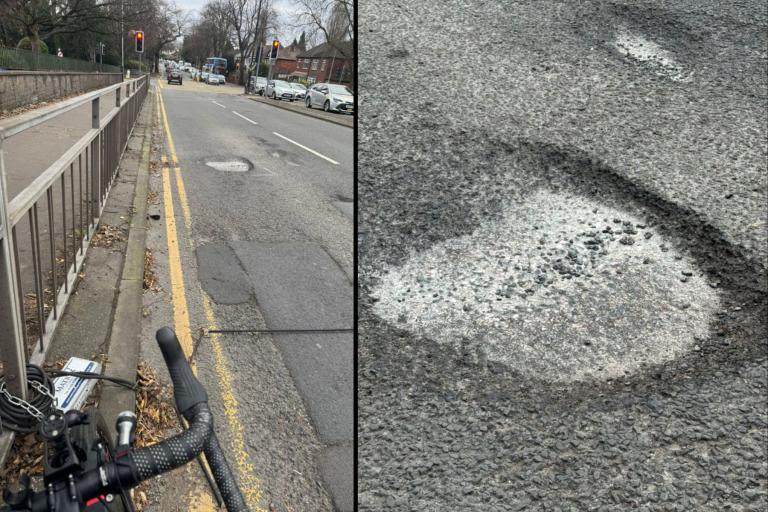
“Not only are potholes an inconvenience that can damage a person’s car, but for people who cycle, they pose a serious risk to life”: Cycling UK calls on local communities to report a pothole for National Pothole Day
As we mentioned earlier, it’s 15 January, which means only one thing: it’s National Pothole Day!
And to ‘celebrate’ this ongoing annual festival of dangerous governmental incompetence, Cycling UK has called on local communities across the UK to report a pothole to their council, to help identify the full extent of the problem, and therefore pressure local authorities to “properly fix the nation’s roads” and make the case to Westminster for more roads funding.
Urging cyclists to report their local decrepit roads through its ‘Fill That Hole’ app – through which almost 200,000 potholes have been reported since its launch in 2007 – the charity said: “In recent years, potholes have become more widespread due to inaction and underfunding by central government.
“While media attention is often focused on the problem they present to people driving, the risk of loss of life or serious injury is too often overlooked for people who cycle.
“Reporting a pothole can significantly increase the likelihood of the council fixing it - because the local authority can’t claim not to have known about it.”
Like Mr Pothole earlier this morning, Cycling UK also noted that £1.6bn was set aside to fix potholes across England in the government’s Autumn Budget.
However, the backlog of maintenance issues means that between £12.1 and £16.3 billion is actually required over 11 years to bring the roads up to scratch and make them safer for people on bikes, with around 40 cyclists killed or seriously injured each year due to potholes in the UK.
The charity also says that reports through the Fill That Hole app or website go directly to the relevant highway authority, which should then check and repair where necessary.
“Crucially, if the authority fails to take action, these reports can help others in the future should they need to claim for damage or injury against the council if that road defect hasn’t been fixed,” Cycling UK added.
“We’ve been pressing for sustained and adequate funding to fix the nation’s potholes for decades and, although progress has been slow, we’ve seen the seriousness of the issue prioritised more recently,” Cycling UK’s chief executive Sarah Mitchell said in a statemen.
“Not only are potholes an inconvenience that can damage a person’s car, but for people who cycle, they pose a serious risk to life.
“Whether in rural or urban areas, potholes can cause crashes, potentially putting cyclists in the path of an oncoming car or sending them over their handlebars, with the risk of serious injury. On average, a staggering 40 cyclists are killed or seriously injured each year as a result of potholes.
“Commitment to fixing our nation's potholes is welcomed, but we must ensure that funding is properly sustained to repair our roads and save lives. Only then can we ensure that these efforts truly benefit people who cycle and drive on our roads nationwide.”
15 January 2025, 14:57
Council warned “future deaths could occur” unless speed limit is lowered on road where cyclist was killed by overtaking minibus driver
A coroner has urged a local council to lower the speed limit of a residential road in Newcastle, concluding that the current 40mph limit is “unsafe” and has the potential to cause further fatalities, following an inquest into a cyclist’s death after he was hit by an overtaking minibus driver.
Read more: > Council warned “future deaths could occur” unless speed limit is lowered on road where cyclist was killed by overtaking minibus driver
15 January 2025, 14:32
Fancy a (virtual) spin with Wout? Belgian star set to take part in community ride with fans on Rouvy
If you watched Wout van Aert toy with the Vuelta peloton last August, or destroy the field in Dendermonde this month, and think ‘I could easily live with him’ – well, here’s your chance.
Next Tuesday 21 January, fans will be able to join the Visma-Lease a Bike leader for a virtual leg-loosener on indoor cycling app Rouvy – while watching Van Aert suffer a whole lot less than they are on an Instagram live stream at the same time.
The ride, which will take place at 5pm UK time next Tuesday, will utilise Rouvy’s unique and extremely realistic augmented reality technology on its Lago di Resia, so it will really look like Wout van Aert is dropping you around a picturesque northern Italian lake.
“Cycling has given me so much, and I love the idea of sharing that passion with fans and riders around the world,” Van Aert said in a statement for the app. “Rouvy makes it easy to connect and ride together, regardless of where we are. I can’t wait to see everyone on the virtual roads!”
The ride with WVA will be available on the homepage on Rouvy’s app next Tuesday, with free trials available for new users who want to join in on the ‘cycle with a pro’ fun.
15 January 2025, 12:27
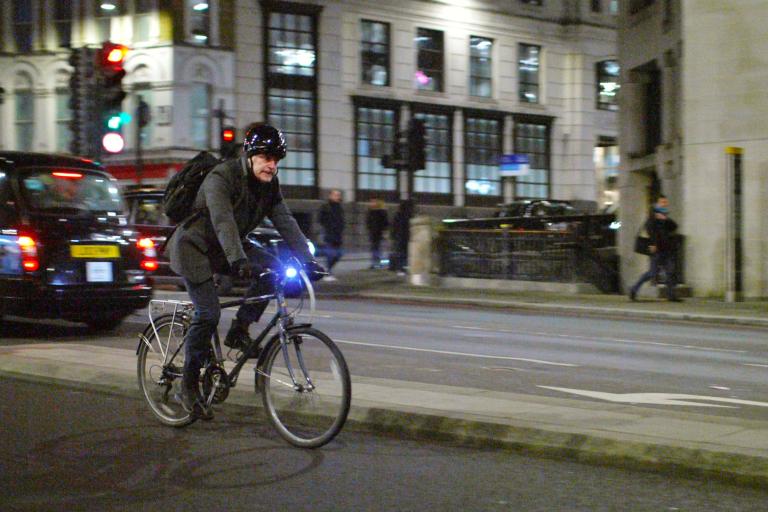
Blinded by the Bike Light: Are you being dazzled by other cyclists’ overly bright lights?
An interesting, and timely, debate has sprung up on the road.cc forum concerning bike lights – namely, are they simply too bright these days?
“Anyone else noticed this year that there’s an increasing number of overly bright front (and rear) lights, or is it just me?” asked road.cc reader Slartibartfast as part of their post, ‘Moan: Constantly dazzled by other commuters’.
> Are bike lights too bright nowadays? Different beams and power settings tested
“My commute has an extended part over an unlit moor, but mostly lit cycle paths, and I’d say people have their lights on the wrong setting or pointing at eye level approximately 50 per cent of the time.
“Maybe my eyes have just got more sensitive but I’m finding myself having to ask people to please turn their daytime strobe off as I can’t see where I’m going.”
“Same goes with car headlights for those of us road riders,” replied bobbinogs.
“It’s a similar sort of arms race it seems,” agreed Slartibartfast. “On a pitch-black country lane, yeah, 1500lm is necessary, but on an urban cycle path less so.”
Meanwhile, chrisonabike wrote: “Nothing new I suspect. Where manufactures can with new tech, some will, then gradually most will. And ‘excellent’ yesterday becomes inadequate because many folks judge by a combination of price and where the thing sits in relation to other products available now (Whether they have a Scooby Doo or not).
“Anyway, I’m very happy with my up-to-3-W of dynamo-powered-lighting for most (sub)urban pottering. I think most of my salience (where people are looking for cyclists, or looking at all) comes from moving reflective lights. But my lights are enough to see and be seen by pedestrians on shared-use spaces.
“BUT on a rare late-night country ramble, yes, I'll amp up with some rechargeables. FWIW, I am just old enough to remember how bad the Ever Ready battery jobs were, even with far more acute youthful eyes…”
Ah, Ever Ready – just the mention of the name is enough to send cyclists of a certain vintage down (poorly-lit) memory lane.
Anyway, what do you reckon? Are bike lights becoming too bright? Or are you just glad the technology has moved on from the low brightness and low battery world of the ‘80s?
15 January 2025, 13:15
Drum roll please…
road.cc’s annual awards season continues at pace – and today’s category is for all you bargain hunters out there… (Warning: there may be repeated Boardman appearances in the following article.)
> The best cycling bargains: check out the road.cc Recommends Bargain Buys of the Year 2024/25
15 January 2025, 11:48

“I’ve lost faith completely in any government or political party really wanting to do something”: End of an era as Mr Pothole marks National Pothole Day by announcing he is quitting his campaign after 12 years… with parting shot at government inaction
This year’s National Pothole Day fittingly marks the end of a long, bumpy, poorly-maintained era, as Mark Morrell – better known to the masses as the hi vis-wearing Mr Pothole – announced this morning that he is stepping away from his 12-year campaign to fix Britain’s battered roads.
> National Pothole Day: An interview with Mr Pothole
Since adopting the Mr Pothole moniker back in 2013, Morrell has reported thousands of road defects, formed his own pressure group, become a TV regular, and even partnered with Pot Noodle, as part of his battle to get councils and the government to act on what he dubbed in 2023 the UK’s “dangerous pothole menace”.
However, this morning – on National Pothole Day no less – after 12 years of campaigning, and with his wife’s health deteriorating at home, Morrell announced on Good Morning Britain that he’s hanging up the hi-vis for good – but not without aiming a parting shot at governmental inaction first.
'I've lost faith in any government or political party wanting to do something.'
On National Pothole Day, Mr Pothole aka Mark Morrell, has announced that he is quitting his campaign after more than a decade. He talks to @susannareid100 and @edballs about his reasons for doing so. pic.twitter.com/uKmFIsE3NM
— Good Morning Britain (@GMB) January 15, 2025
“I’ve lost faith completely in any government or political party really wanting to do something,” the campaigner told Susanna Reid and Ed Balls.
“They talk £1.6bn being an awful lot of money, but the size of the backlog in the UK is not only £16.3bn in carriageway works in England and Wales, there’s a £6bn backlog in bridge maintenance. Then you’ve got footpaths, which I estimate to be around £30bn.
“If the government had come out and said they were going to put an extra £3bn a year to resurface our roads, I could see there being some change. But unfortunately, that’s not going to happen.”
Enjoy your retirement, Mr Pothole, and thanks for your service!
15 January 2025, 12:53
Cyclocross beach racing – extreme edition
Err… No thanks. I’ll stick to the muddy field, cheers.
15 January 2025, 11:17

Is the Tour de France’s rumoured Montmartre detour a good idea?
As the Parisian authorities reportedly deliberate over whether to allow the Tour de France peloton to ride up the Butte Montmartre three times during the 2025 race’s final stage, I reckon it’s time for a live blog poll, to find out once and for all whether tampering with the Tour’s 50-year-old procession-turned-sprint warfare on the Champs is good idea or not.
What do you reckon? Is the Tour’s traditional champagne-tinged finale a sporting institution not to be messed with? Or could three ascents of Montmartre finally ignite a proper full-on race through the French capital’s streets in July?
15 January 2025, 10:58
Wake up Western bike wheel brands!
Chinese carbon wheels have long been cheaper, but do they now offer as good (or even better) performance compared to their traditional counterparts as well? By digging into the details, Jamie sought to find out…
Read more: Have Chinese carbon wheels now overtaken established brands factoring in performance and price?
After obtaining a PhD, lecturing, and hosting a history podcast at Queen’s University Belfast, Ryan joined road.cc in December 2021 and since then has kept the site’s readers and listeners informed and enthralled (well at least occasionally) on news, the live blog, and the road.cc Podcast. After boarding a wrong bus at the world championships and ruining a good pair of jeans at the cyclocross, he now serves as road.cc’s senior news writer. Before his foray into cycling journalism, he wallowed in the equally pitiless world of academia, where he wrote a book about Victorian politics and droned on about cycling and bikes to classes of bored students (while taking every chance he could get to talk about cycling in print or on the radio). He can be found riding his bike very slowly around the narrow, scenic country lanes of Co. Down.
Latest Comments
- David9694 18 min 26 sec ago
Copford residents upset as new traffic lights go up...
- Rendel Harris 40 min 15 sec ago
What he wrote is a direct word for word quote from the King James Bible, one of the very greatest achievements of written English in the history of...
- stonojnr 46 min 3 sec ago
From what I understood from lawyers, there's nothing preventing a charge of manslaughter being applied in addition to death by dangerous driving...
- AidanR 1 hour 1 min ago
"Jonas was talking about how he was dizzy. I didn’t have the impression that he was very lucid."...
- Dnnnnnn 1 hour 33 min ago
Nocturnal implementation isn't ideal but I think your final sentence captures why it was probably necessary....
- Mr Anderson 1 hour 58 min ago
In 1981 I bought a bike from Halfords that cost £115. Today, that is the equivalent of £670. Yet a bike of that value today is considerably...
- wtjs 2 hours 16 min ago
when the killer's colleagues showed up, he claimed the cyclist "Came out of nowhere". And, until the local news station investigated and found the...
- IanGlasgow 2 hours 23 min ago
You have to not just obey the legal requirements of The Highway Code (riding on the road not the pavement, have lights and reflectors, etc.), but...
- Pedal those squares 4 hours 21 min ago
I thought if things got that bad the rear cassette could crack open a bottle!
- mdavidford 5 hours 12 min ago
Most of those people aren't cycling as sport, though, which is the relevant outcome for BC's purposes....

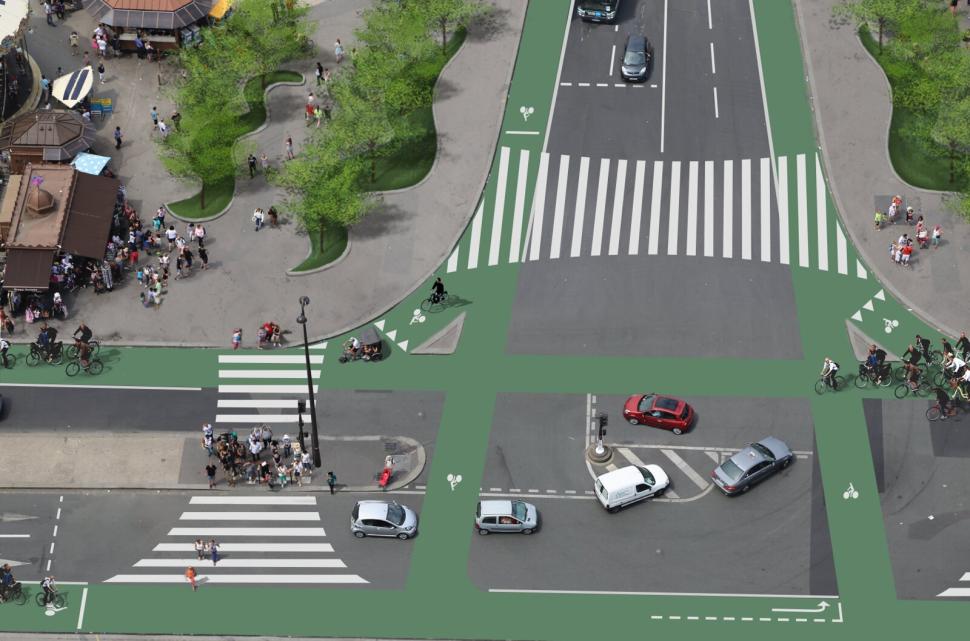

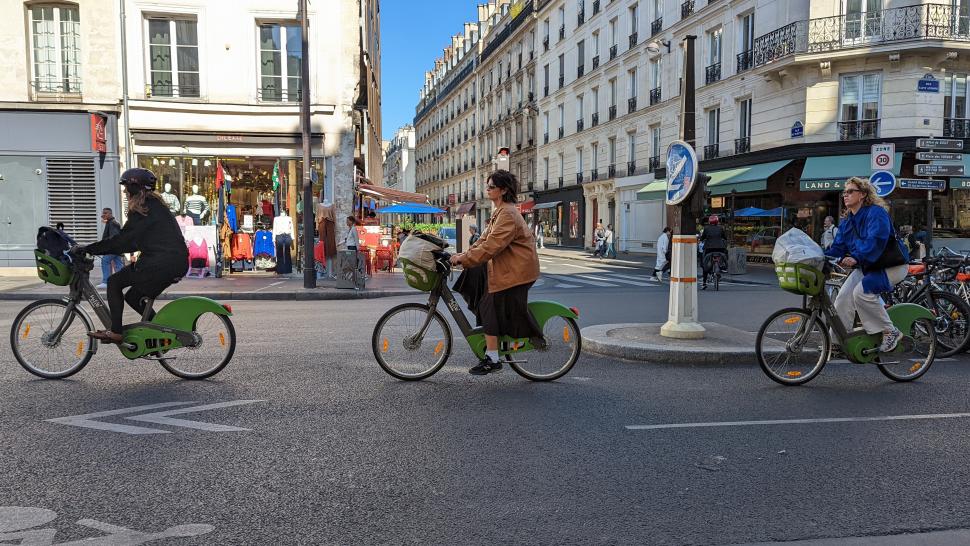
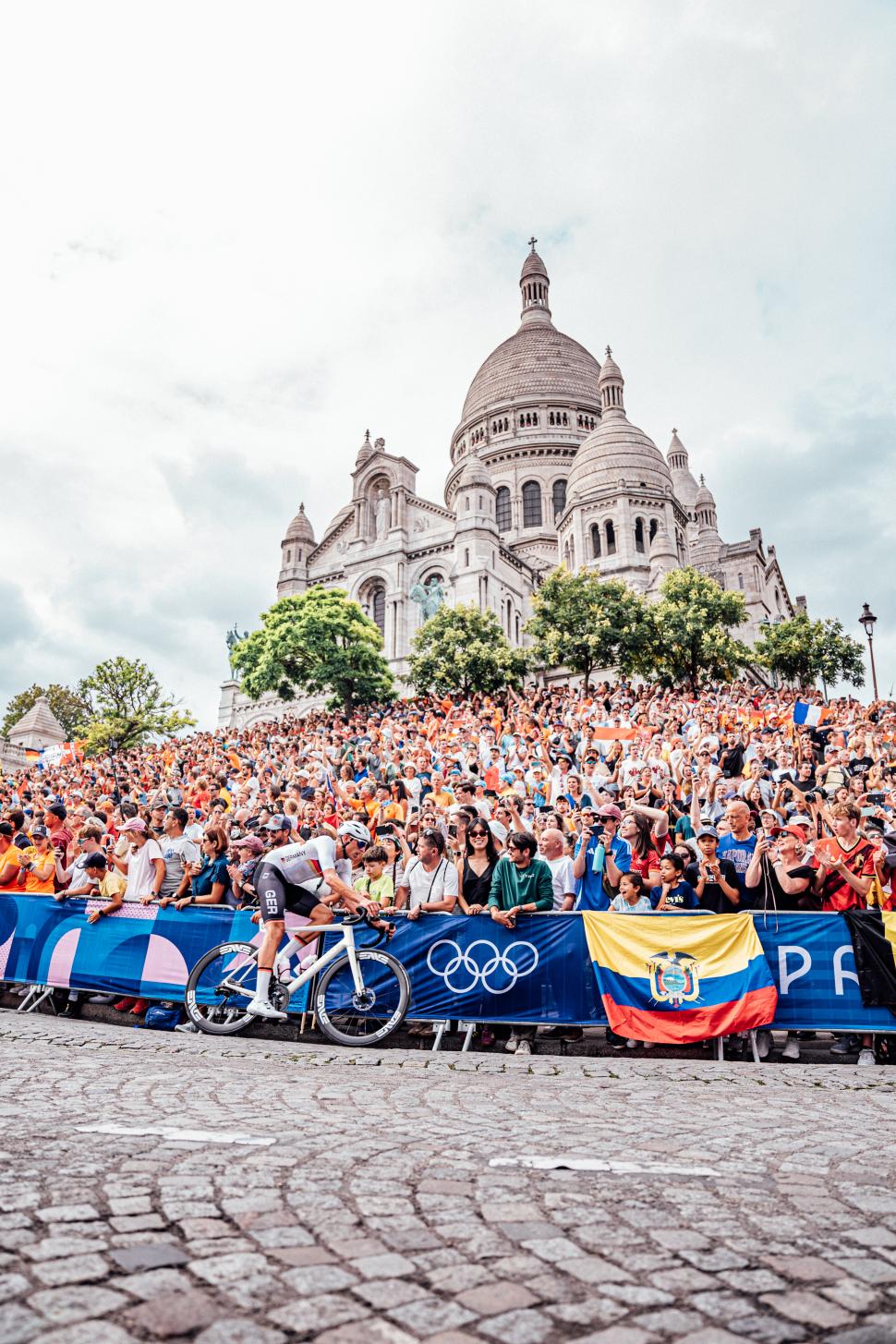
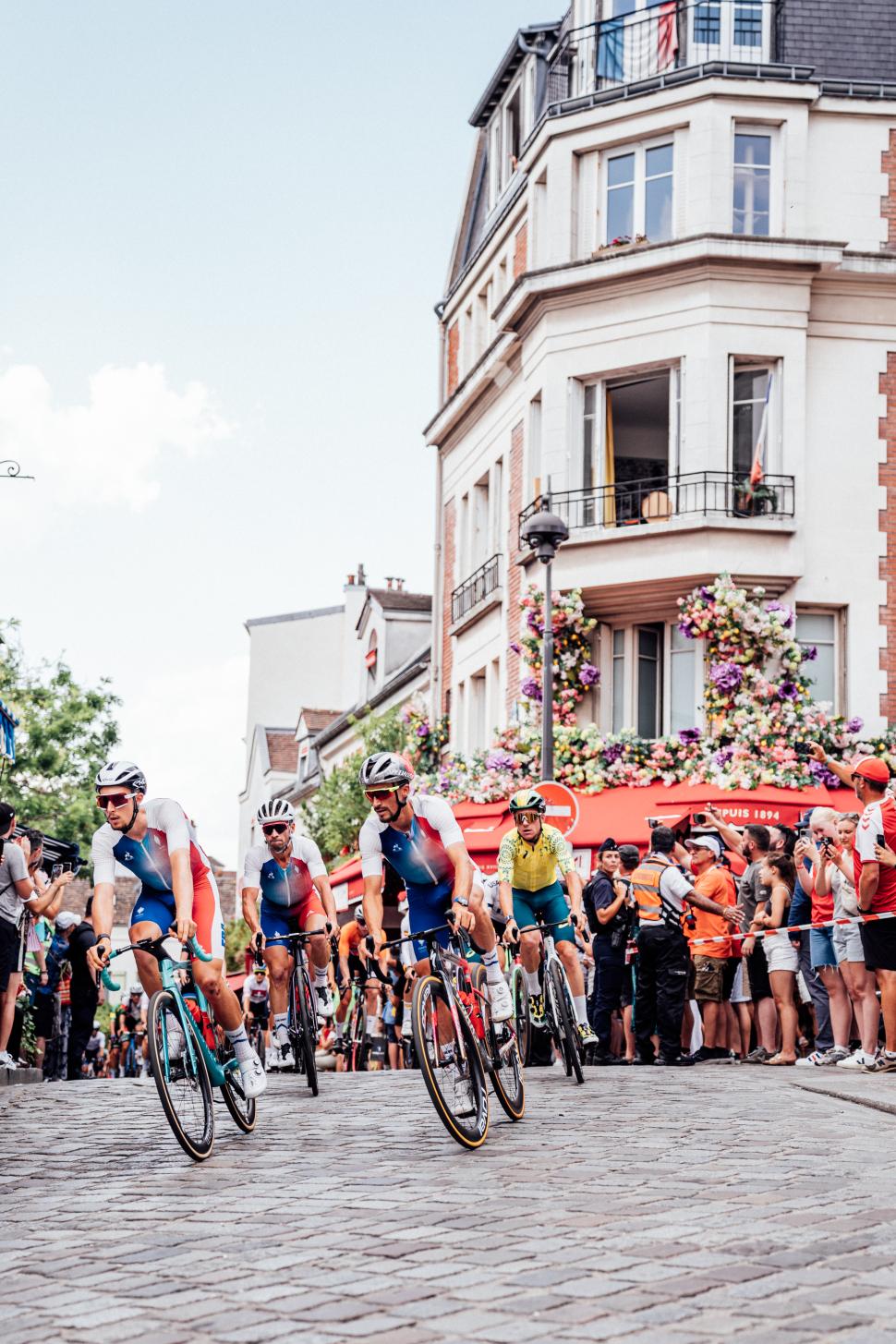
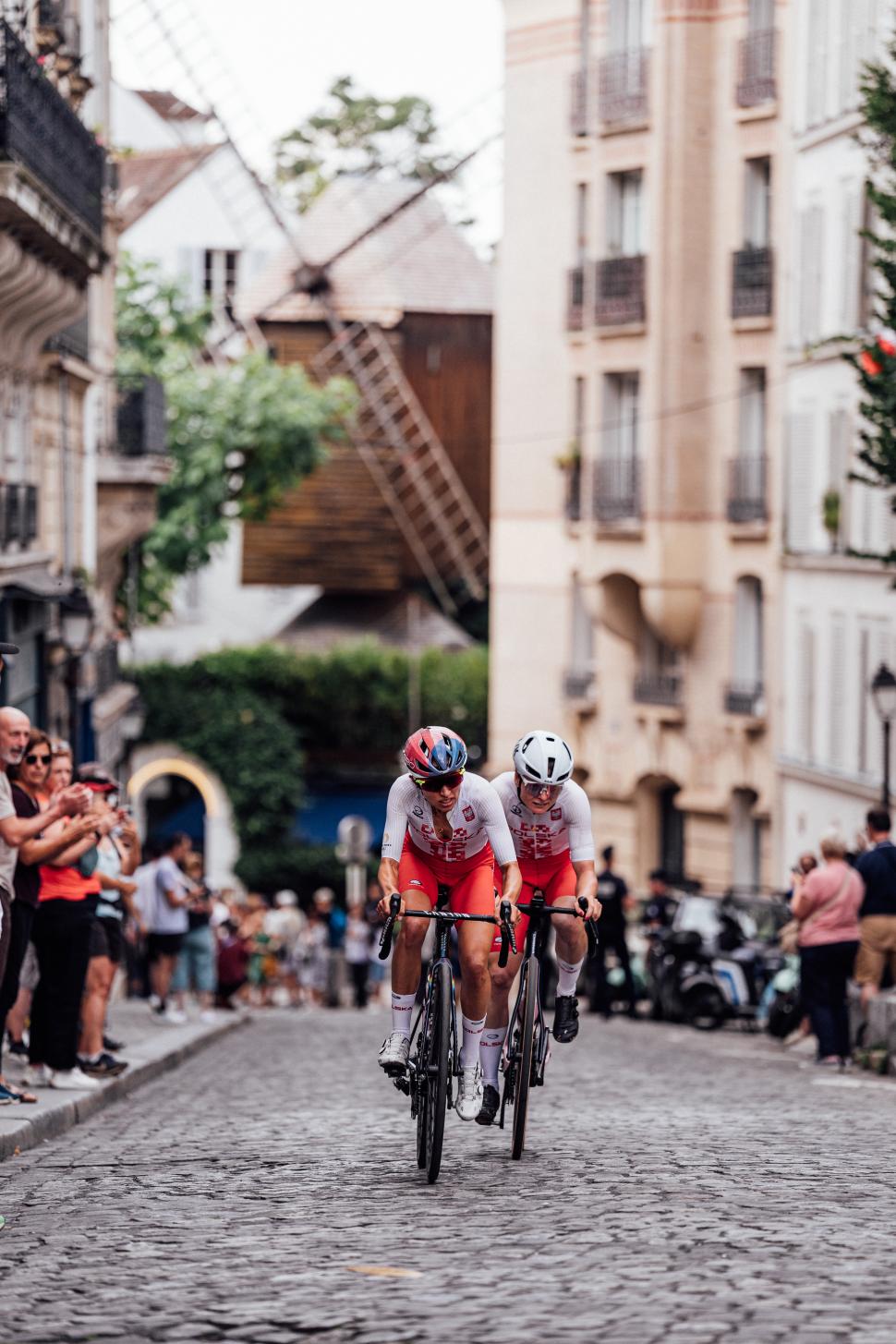
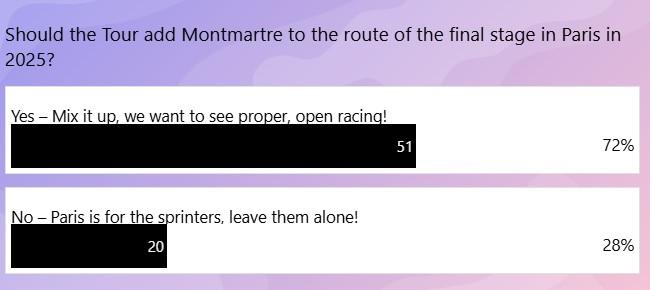
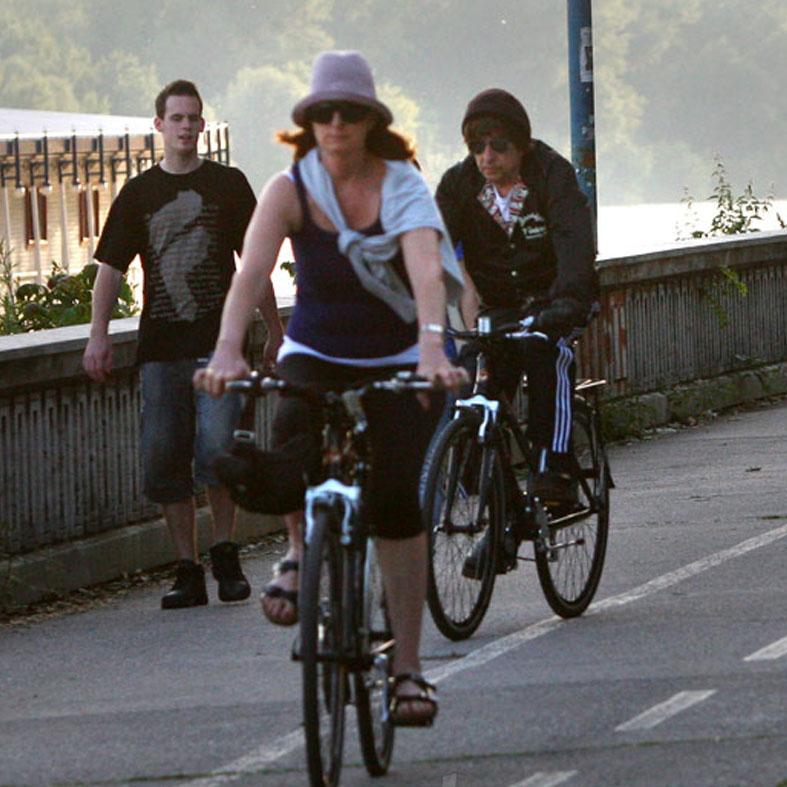
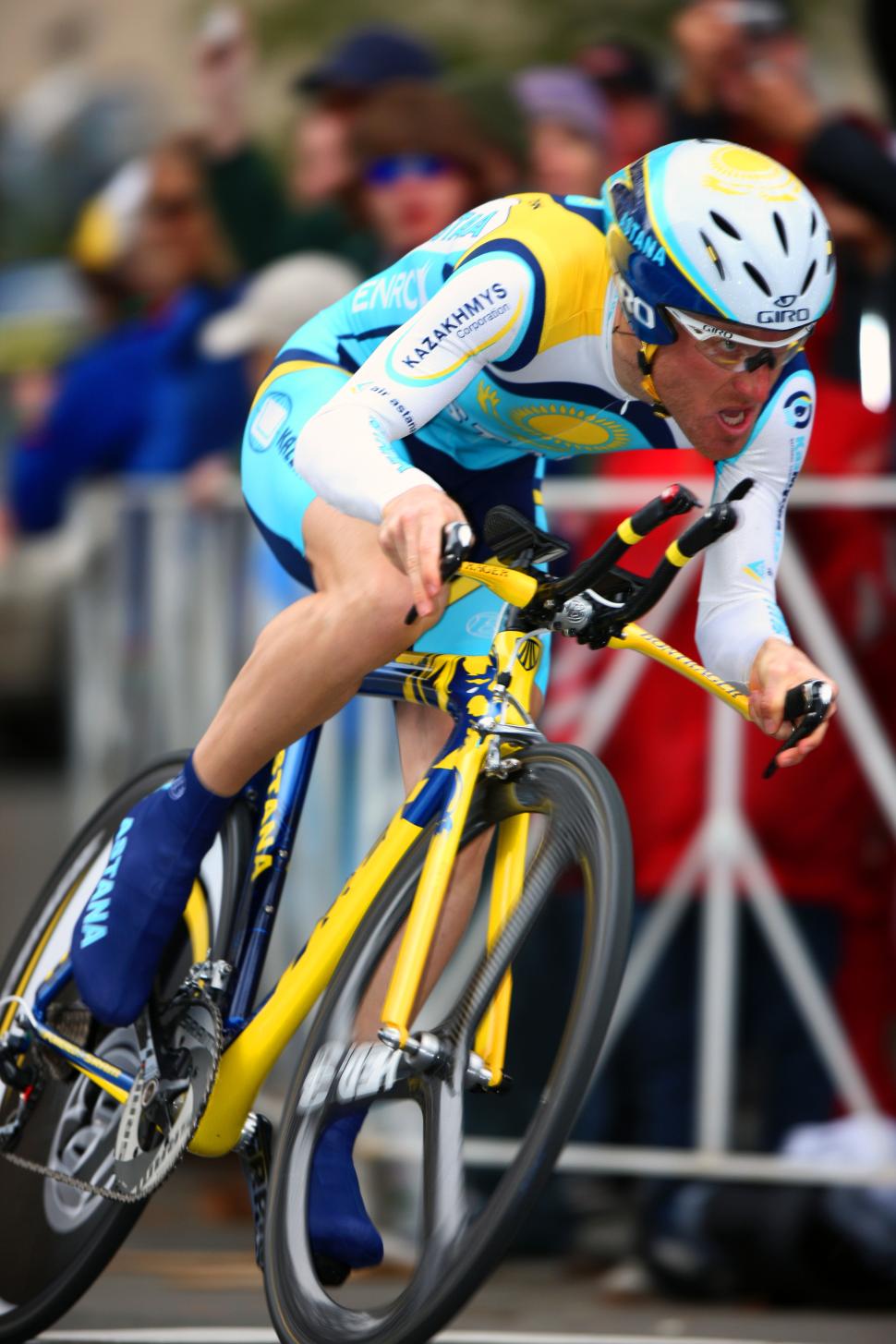
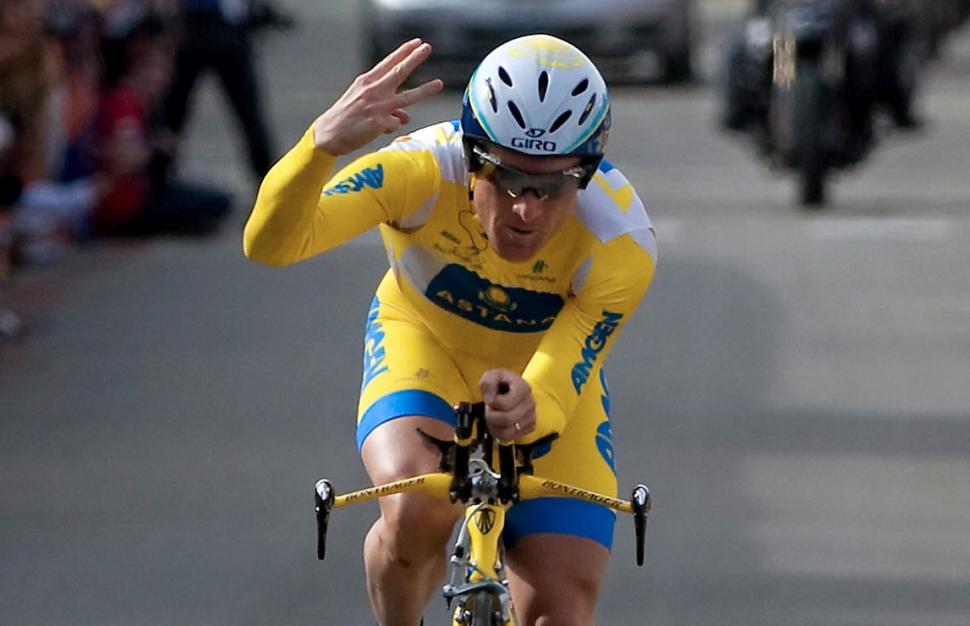
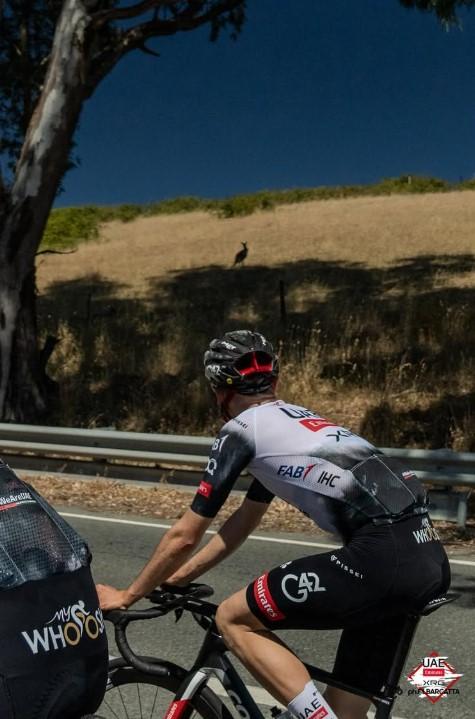

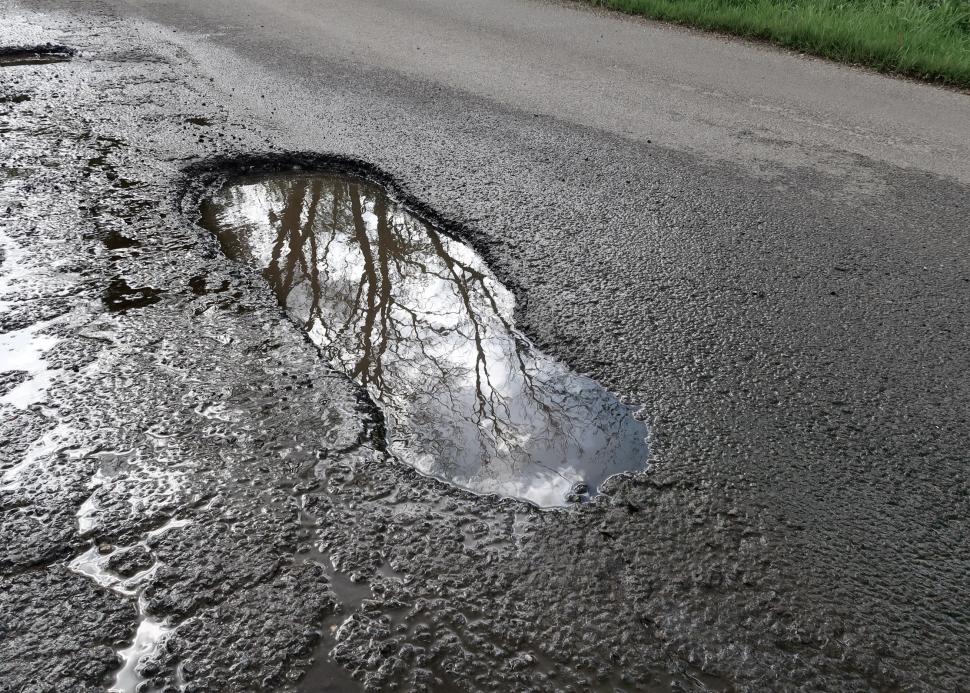
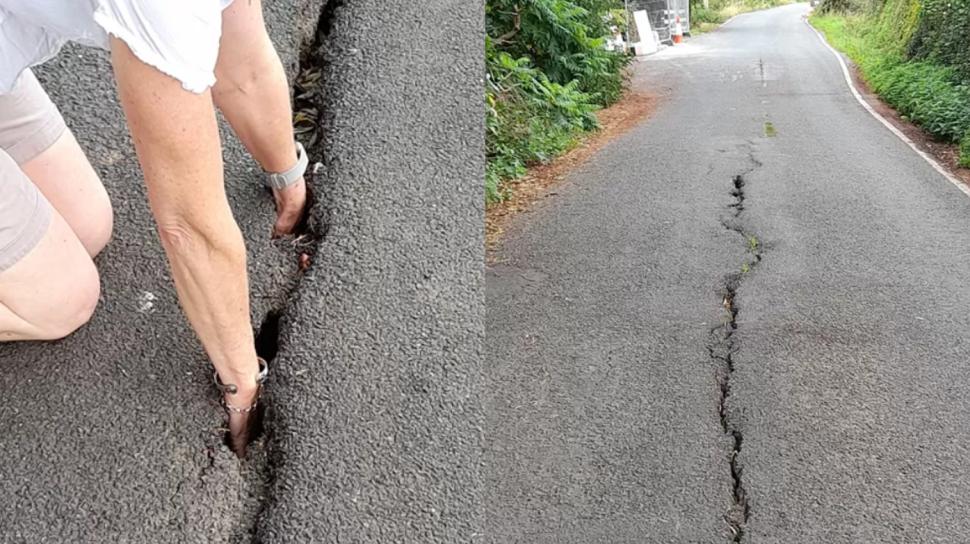
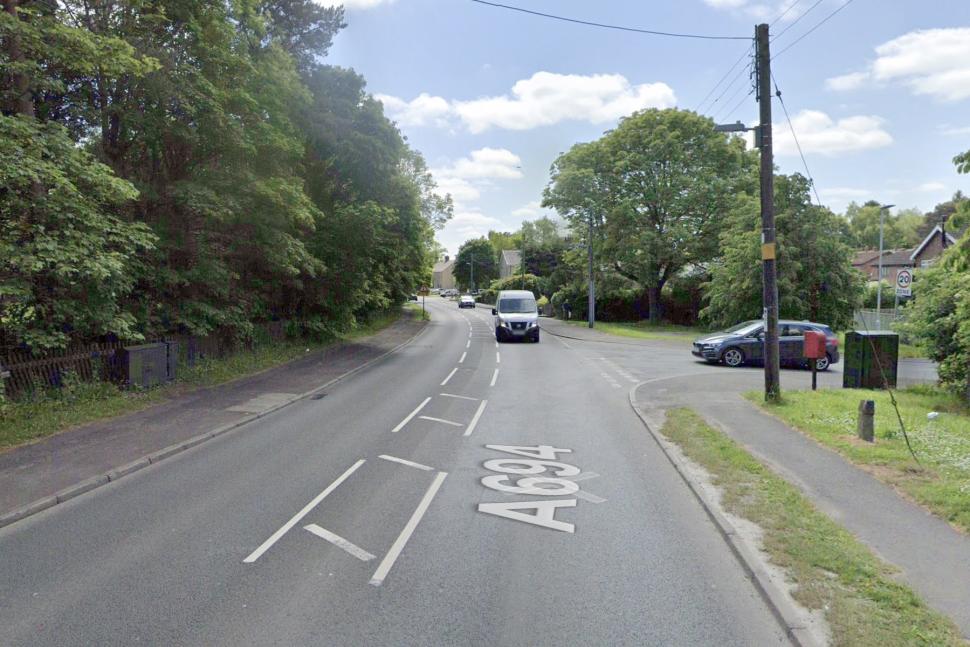

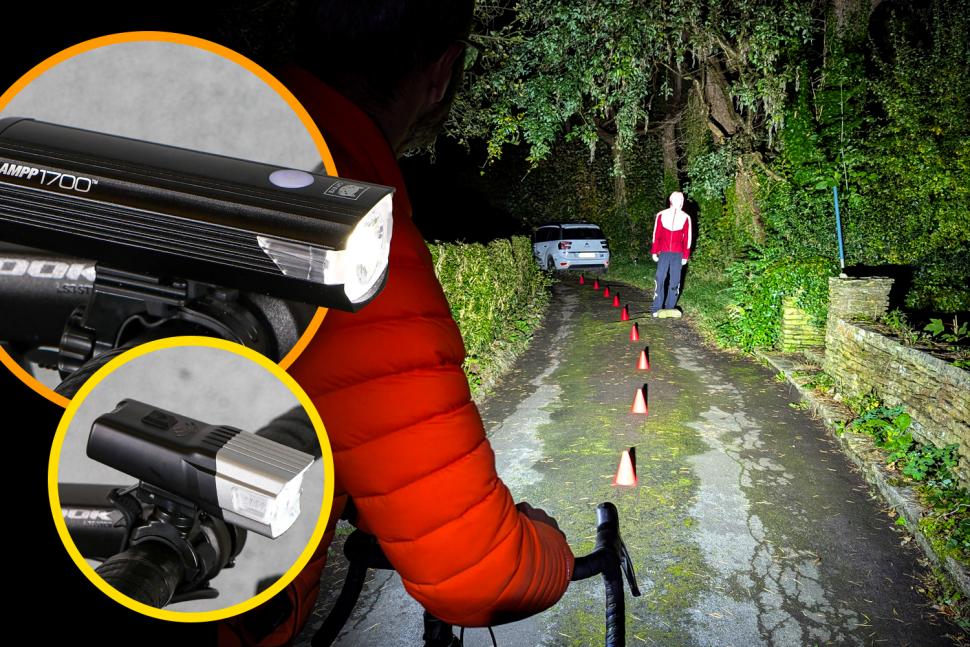
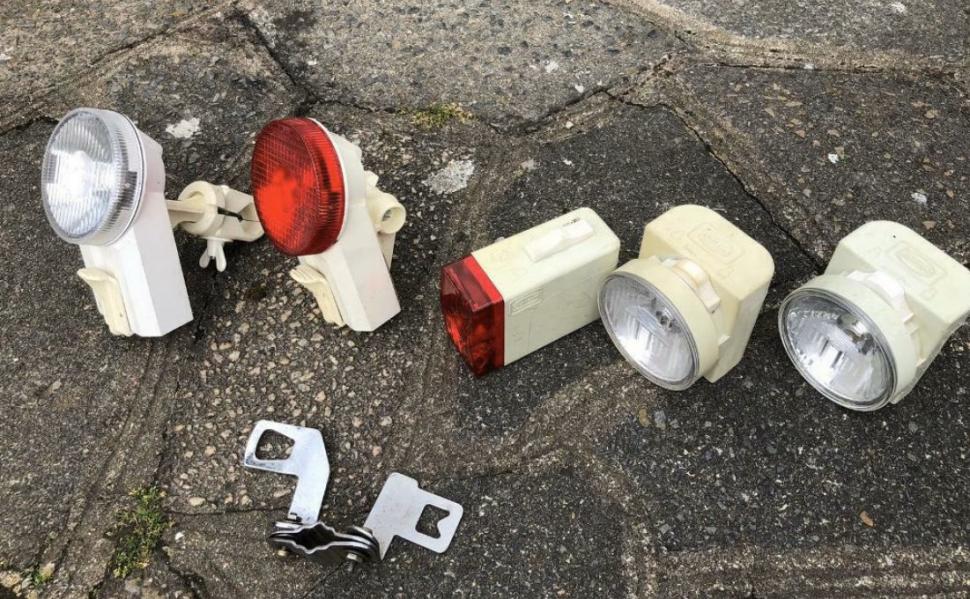

Add new comment
58 comments
Just heard that Timothée Chalamet was fined £65 for not leaving the bike at a docking station.
I can remember, back in the mists of time, when Dylan were a lad, both the Times and Panorama were serious media, not click bait farms. Just like Maggie's.
Well, you wouldn't want to work on that farm, would you?
(edit) Not any more, anyway…
Journey times for cyclists in Paris must have been considerably reduced, also the slower average speeds of buses might be because they are carrying more passengers, so they spend more time at bus stops because more people get on and off the buses.
I stopped in a small backstreet in Egham today to adjust my headgear, when a pedestrian crossed the road and stopped in front of me, she then complained about my bright lights - I told her to cross the road behind me next time. The lights I used were those small cheap square types, so they were not very bright. So it's gone from cyclists don't use lights to cyclists are using lights that are too bright.
Yet another example of Schrödinger's cyclist.
I'm often blinded by lights on our main MUP through town at night. Most of them are cheaper e-bikes like Letric or Rad Power. On the one hand, unlike most of the non-powered bike users on the trail, they at least have lights that always work. On the other hand, the manufacturer has fitted it with a very bright LED with no cutoff or even varying brightness levels. It's just on, and blinding.
Lots of blinding lights out there. If we lived in Germany, they would be banned - not for being too bright, but not being dipped. I've had a 1,200 lumen Ravemen for a few years and it's great: full beam when needed; dipped whenever there's anyone else about. Great beam and no dazzling anyone.
@road.cc, your annual beam tests seem not to emphasise dipped lights. I think you should stop promoting any lights that dazzle people. Either that or start campaigning to ban the lights that dazzle.
I'm reading this at the moment:
https://pelagicpublishing.com/products/traffication
Very interesting.
According to the author, in 1900 there were "fewer than" 800 cars on Britain's roads; by 1904 it was 23,000; by 1910 it was 60,000; by 1958 it was 4,000,000; and it's now approx. 40,000,000.
Britain's cars alone would be a nose-to-tail traffic jam three vehicles wide, stretching around the equator
Back of envelope I reckon it's nearer five lanes. Each car takes 5 m gives 200,000 km. Earth's circumference is about 40,000 km.
This is blowing my mind!
Just walked 2 hours from Shooters Hill to London Brisge Station. SERENE! Every bicycle, ebike, car, van, lorry, bus perfectly behaved. Ebike stopped at red light. Highway Code Priorities all followed. Just... wow! Like some higher power waved their hand over SE London to show, "This how it can be." This often grumpy 69-year old is really quite deeply affected.
And then you woke up.
The way most Limeists I see in central London conduct themselves they had better hope that Death is Not the End because it won't be long before they are Knockin' on Heaven's Door - all it takes is A Simple Twist of Fate. Truly a Motorpsycho Nightmare, I've spent One Too Many Mornings trying to avoid them when riding Down the Highway.
That, and so heavy to lift off from blocking pavement to toss over a low wall onto waste ground. Or maybe just much heavier than expected. That mass will translate into big momentum if they crash into anyone. But, in 2 hours walk from Shooters Hill to Kings Cross Station, even Lime bike, along with every other vehicle and pedestrian was perfectly behaved. Genuinely uplifting
But there are always problems and complaints when one has a new pony or there's a changing of the guards it's probably because true love tends to forget (© R.A Zimmerman 1977)
If anyone claims that cyclists/cycle lanes cause congestion...
Ask them to compare journey times during school term/rush hour versus during school holidays...
Also now with a proportion of people who can work from home, Wednesdays are the busiest days on roads/public transport for people going into offices etc, followed closely by Tuesdays and Thursdays, with Mondays and Fridays being quietest.
The proportional numbers of cyclists on the roads on those days is nothing compared to the number of drivers.
Agree, but you'll get "ah, but it's those commuting cyclists getting in the way of vehicles - plus it only takes one cyclist to hold up all the traffic and everyone gets slowed down..."
While this is generally a "cycling fallacy" there is a (small) grain of truth here. Because: a) motor vehicles are so space-inefficient and b) there are bottlenecks in the road system and c) some of our roads operate close to or at full capacity ... then small delays or losses of capacity can have a big impact across the system. (Thoughtful article here).
The flip side of this of course is you don't need to remove many drivers* to have a positive impact! * (Divert many of those trips to other modes, or they're simply not made - turns out not every trip is vital and non-discretionary.)
That space-inefficiency of course leads to other confimations of existing opinions like "look at the massive queue of cars, next to the almost-empty cycle path!"
So I don't know this helps - but perhaps an "all cyclists / mobility vehicle users drive instead" day every so often might help people understand?
If there's a cyclist on the road what's stopping the cars from overtaking?
I'll give you the answer - it's all the cars coming the other way. The only thing slowing down cars is other cars.
"... what's stopping the drivers from overtaking?"
"The only thing slowing down drivers are other drivers."
I agree to the drift but there's a little more to argue. First, people are only interested in what is different from the status quo (where things are or appear worse). So "if the cyclist weren't there nobody would have to overtake". (Of course - people have to overtake!)
Well, on average cyclists would be proceeding more slowly than motor vehicles (sometimes much slower). So compared to the "no cyclist" situation (no "need" to overtake) yes, they would delay people (depending on how easy it is to overtake, which depends in part on traffic volumes). If, that is, this weren't within an urban area - for in many of those the average motor traffic speed is within easy cycling speed! And of course that is because lots of time is spent waiting at junctions, especially at ones with traffic lights. Why? Because of the other motor traffic! (If there were only cyclists traffic lights wouldn't be needed - nor roundabouts etc.)
Overnight there is no congestion, but the cycle lanes are still there, so cycle lanes cannot cause the congestion.
Not sure if this news report was missed on the live blog as it seems to be a bit quiet.
"£2m settlement for cyclist who suffered "traumatic, life-changing brain injury" in collision"
https://road.cc/content/news/ps2m-cyclist-who-suffered-life-changing-inj...
Why no details about the collision itself?
I appreciate that privacy laws may prohibit the naming of the other party (presumably a driver, and their motor insurer who settled the claim/case) but the specifics of the collision itself would be usefull.
as a sometime visitor to Paris, I'd say that the bus slowdown is more to do with the massive projects to do with the Olympic Games, not cycle lanes.
also, the fact that there has been a huge decrease in buses and bus routes would imply that there's not an easy before-after comparison
Chapeau! But how does it feel?
Can't match your memory of the lyrics * but I do recall there was a lot of hate when Dylan went electric (though not battery)!
* Read an anecdote where an interviewer was asking Dylan about his memory - how did he retain all those lyrics over the years? Apparently Dylan just pointed to the corner where there was a cheap "Bob Dylan songbook"...
Pages